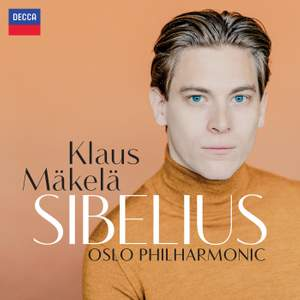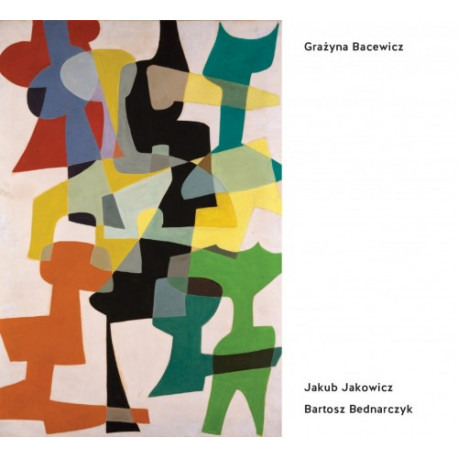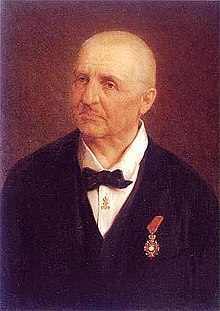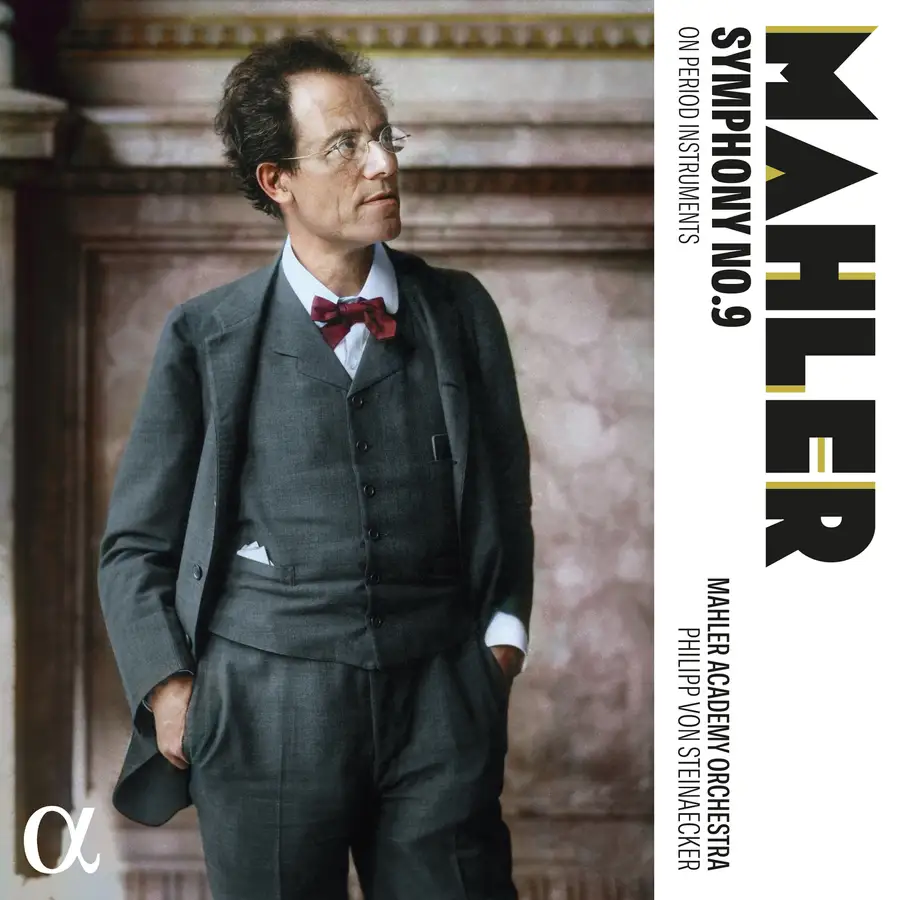Streaming Classical (22-5): Sibelius, Bacewicz, Dido, Gershwin
Klaus Makela The name is completely new to me, and what a surprise! At the age of 26, the Finn is already at the helm of the Oslo PO (following Vasily Petrenko) and Orchestre de Paris (following Paavo Jarvi)! He has signed an exclusive contract with Decca (only the third conductor to do so, after Solti and Chailly) and the first release is a Sibelius Symphony cycle with the Oslo. This is brand new, and so far critical reception is limited to the UK. Most highly praised it (the Gramophone review is particularly insightful, a good example of the reviewer’s art). But there are dissents. The Guardian was negative. For my taste, while I understand the latter’s complaint of episodic treatment, I think he misses the point. Although Makela can micromanage and stretch things a bit, his excellent rhythmic articulation, careful dynamic scaling, and the utterly beguiling coloristic playing of the Oslo seem almost operatic, Wagnerian, and hold one’s attention all the way, with the strings and winds and brass seemingly coming after you in wave after wave, and that is what Sibelius (or, for that matter, Bruckner) is about. Not so long ago, I heard Oslo live (incidentally, Sibelius) and marveled at their refinement, and here they rose to even greater heights (higher than those achieved by Jansons and Petrenko). True, Makela’s meticulous treatment surely emphasizes Sibelius as a modernist, though in general the big moments are not remiss, even for the romantically inclined. Consider the Finale of the 2nd and Largo of the 4th, such great music that if you do not get goose pimples or get swept off your feet the performance is not good enough (and most are not). No fear, here they are delivered! As the Guardian critic alluded to, it is true the finale of 5th (which is next to 2nd in popularity) is not as romantic in its peroration as some (say, LSO/Gibson, RCA/Decca, long an audiophile staple, and still available in 200 gm LP), but Makela is not without merit as he positions it much closer to the more economically aesthete sound world of the 6th. In this cycle, as a whole,, Sibelius is neither hot youth at the start nor older barren landscape at his end, but constantly shifting in minutiae, sometimes more sensuous and vocal, sometimes questioning, but not all all sentimental. Although it may disappoint those who look for grand gestures and Tchaikovskian inklings, it is a highly refreshing cycle, unlike any other, and I have heard them all. I have no doubt this is my favorite complete cycle now, bar none, especially as it is abetted by Decca’s glorious sound (and bargain pricing). The great thing is, for some reason Decca has loaded the entire cycle on to youtube, and you can listen for yourself. But I’d want the CD set! In passing, his compatriot Matthias Rouvali, who has recorded No. 1 (I like it) and 2 (Alpha; the latter deemed CD from Hell by Classicstoday), seems to have hit a pause button. I actually don’t overly mind the indulgence of Rouvali, but Makela is less imposing on the orchestra, more refreshing and breathing together with his orchestra - more visionary. Marvelous young man! Incidentally, Makela has many full videos on youtube, all works that I like, and I plan to stream them all. I just streamed the 2021 Bruckner 9th (Orchestre de Paris) and it was very good, impressive for one so young. I must say the OdP played with fire and idiomatically - sign of chemistry (and that Paavo Jarvi had done a good job previously)!
Johan Dalene BIS has championed this Swedish violinist, whose playing is quite refined. His latest release is a stunner. Befitting his being Carl Nielsen competition winner, his account of his stylistically elusive concerto is simply the best I have heard (most are pedestrian in comparison). Bravo! And the Sibelius coupling is also very fine. Kudos!
First Desk Ladies There are now many women-led String Quartets, even completely female ensembles. But my benchmarks have not changed. For a long time, I have preferred the Artemis (Erato) and the Belcea (EMI). The former had long changed its leader, from the formidable Natalia Prischepenko to the excellent Vineta Sareika, but the ensemble sound had taken a different direction, softened noticeably. For me, while still tops, they lack a little the fire they had before. But I have to give it to the group that they are one of the few to list previous formations (so many just erase the past). In contrast, the Belcea has retained its leader, Corina, and remain formidable. Their latest release of the Brahms Sextets (Alpha) is like over-indulgence. Adding to the immaculate ensemble of the Belcea two soloists and chamber musicians of the highest order, the incomparable violist Tabea Zimmermann and star cellist Jean-Quihen Queyras, and the result is the best version of these works for me, with more inner details than any other, yet with a refined texture. Marvelous! Incidentally, the latter two are half of the great Arcanto Quartet (featuring one of my favorite violinists, Antje Weithaas; make sure you stream their excellent recordings on Harmonia Mundi).
Uniwersytet Muzyczny Fryderyka Chopina (Frederic Chopin Music University; UMFC) This is a complete surprise from the left field. I have never heard of this label, but recently I found many items uploaded to NML. And, boy, the quality of the playing! Most are associated with the University and well versed in chamber music. The Jakowicz’s Father Krzysztof is an eminent Polish Violinist and faculty at the University and had recorded extensively over the years. I first streamed his Faure Sonata No. 1 (Dux, 2008) and was mightily impressed. Although this work is a personal favorite, not many (listener and performer; among the latter is Kyung Wha Chung) can get into this sonata. He is 1959 winner of the Ysaye Competition. Warner had acquired the old Poliskie Nagrania vault and had put out a few of his early albums. A Szymanowski and Ysaye disc from 1969 (!) impresses for its musical understanding, even if the remastered sound leaves something to be desired. His tighter tone has stayed similar over the years but the older recording just sound too thin. His Bach and Mozart from the same period are stylistically very good. His son, Jakub, is featured on the same label in an excellent Prokofiev Violin Sonata disc, which is deliberately highly expressive (most big names play “cleaner” but much colder). He took lessons from his father, but his tone is completely different, fuller (this is the opposite of Igor and David Oistrakh). His recordings of Schubert and Bacewicz are just superb (Polskie Radio). Of note is that he is now a member of the superb Zehetmair Quartet (all their ECM recordings are worthwhile, particularly the unrivaled Bartok/Hindemeth and Schumann).
Grazina Bacewicz This composer, long deceased, is currently enjoying a renaissance, with recordings pouring forth. IMHO, she is much under-rated, and those who like Prokofiev and beyond will take to her very well, as I do (Weinberg is another current fad, but I think Bacewicz is an even stronger composer). She was an accomplished violinist as well as pianist, and wrote profusely for these instruments. I first encountered her in her String Quartets, superbly performed by the Silesian String Quartet (Chandos). Then I bought the excellent Krystian Zimerman disc of her Piano Sonata No.2 and Piano Quintets (DG). Incidentally, the first violinist on that disc, Kaja Danczowska, is a superb violinist who had appeared long ago with a very young Zimerman on an excellent Szymanowski and Franck disc (DG), which I have on LP! These I have all recommended before. When it comes to Bacewicz' Violin Sonatas, I compared No. 5, one of her best, and I definitely prefer Jakowicz to those who came before (Piotr Plawner/Ewa Kupiec on Hanssler and Annabelle Berthome-Reynolds/Ivan Donchev on MUSO). Great music. I am at most near midway in my exploration of her oeuvres, and I relish it all the way. As previously recommended, her Violin Concertos are also superbly performed by Joanna Kurkowicz (Chandos).
Bach and Baroque, with a Backward Glance I begin most of my days with Bach, and I really cannot live without him! I have probably listened to every version of the Brandenburg Concertos, from Horenstein and Klemperer to the many current period instrument bands. With Bach, it’s almost never a waste of time - the music takes care of itself, no matter how it is performed. Given the current period instrument practice, which I like (last one I recommended was Halubek), it seems almost anachronistic to encounter more traditional treatments. Although the little known Capella Savaria (Hungaroton) is period-inclined, it is almost old-fashioned in its sonority, with a whacking bass line that I find oddly appealing. All its recordings, from Telemann to Mozart and Schubert, offer pleasure, not the extremes that are in vogue now. Back to Poland, the team of Pawel Losakiewicz and Lilliana Stawarz just stunned me in their old-fashioned musicality. Their Bach Violin Sonatas and Telemann (UMFC) and transcribed Scarlatti Sonatas (Dux) reward many a listening session. This now stand with my previous favorite, the period Schayegh/Halubek (Glossa), though the two are very different in style. Mind you, some of the greatest violinists have attempted this repertory to lesser effects (David Oistrakh and Josef Suk come to mind). Lastly, a disc of Bach Keyboard Concertos by a Polish team led by Marcin Swiatkiewicz offers sublimely vibrant playing (Channel Classics). Transcriptions Bach is for sure the most transcribed composer, as he was of his contemporaries. Recently I have streamed Polish DuoAccosphere (2 accordions), Dutch Loeki Stardust (4 recorders) and Ensemble Calefax (Reed Quintet). All very good and explore if you will, but they are likely appealing to smaller number of people than this Bach devourer.
If you think somehow this review is tilted towards Polish musicians, you are not mistaken. This is part of my journey exploring the Slavic people’s contributions (a lifelong pursuit, long before the current conflicts). So many deserve greater recognition! In fact, I have an article on Polish musicians in the pipeline, but given my semi-compulsive nature it will be a while as too many are worthwhile.
Dido and Aeneas Well, this is one of my absolute favorites. From eons ago, I have had multiple LP versions of this gem and I have heard them all. Great as some of the singing was (particularly Janet Baker), they were often hampered by the old fashioned orchestra playing, which cannot hold a candle to current versions in style. Just a day ago, I learned from MusicWeb (excellent and detailed info) of a new video of this opera from Naxos (I don't often do video) by one of my favorite period opera ensembles, the venerable Les Arts Florissants under William Christie, and eagerly searched for it. Miraculously, the entire performance is available from Chinese Bilibili, and I gobbled it up. For the longest time, I have had a dilemma: Dido is too difficult to express and kind Belinda has stolen the limelight. This is no joke - even in Tristan and Isolde, Brangane is more easily expressed than Isolde. Given the ultra-compactness of the opera, there is simply not much time for Dido to express herself, and she's required to turn on a dime, as in her final rejection of Aeneas. Tough job for the singers as well as directors. I watched this whole thing and find it musically just superb. The orchestra cannot be faulted and the chorus is even more beguiling, utterly transparent and often moving, especially in the Epilogue. The video was shot in the opulent Opera Comique. A delight.
Crossovers? Crossovers have a bad name, and in most cases deservedly so. But some astute classical musicians have chosen well. A case in point is the aforementioned Loeki Stardust Quartet, who on Extra Time (Decca) played Misty, Michelle, Scrapple from the Apple (Charlie Parker), Pink Panther and The Shadow of your smile. Interesting. Even better is the aforementioned Calefax Reed Quintet, whose jazzy take on Purcell, Dido and Aeneazz (Pentatone) was my album of 2019. Their earlier Roaring Twenties (Challenge) features cabaret style music, Weill and others, with singer Cora Burggraaf, and a transcirption of Gershwin’s An American in Paris. I have previously recommended Multi-Persona Barbara Hannigan’s Crazy Girl Crazy (Alpha), and her most recent Dance with me with the same band, the versatile Ludwig Orchestra (Alpha) is a delight and will surely please those with even the most peripheral interest in ballroom music.
For classical fans, I have saved the most unusual for last. Now, this one is a seismic stunner: The immortal Sviastolav Richter played Gershwin’s Concerto in F at the 1993 Schwetzinger Festival (SWR Classic). Woww! I am speechless! Catch up!
Below is youtube Dido's Lament from the said production. Superb singing!






















No comments:
Post a Comment